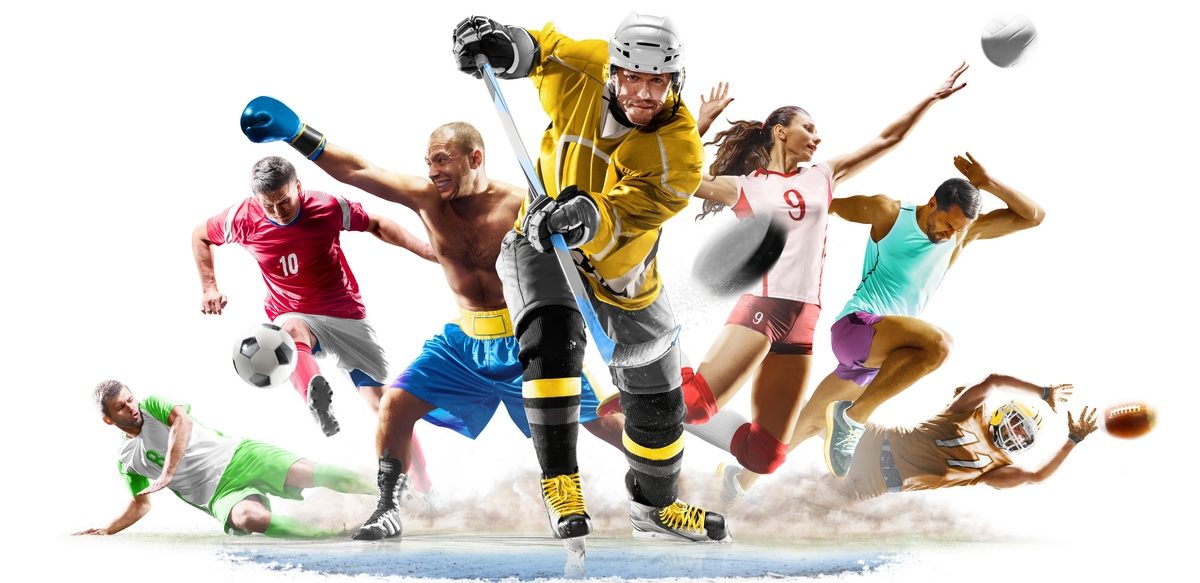
In recent years, Generation Z athletes have begun to redefine the landscape of professional sports, not only through their exceptional talent but also through their mastery of digital platforms. Born between the mid-1990s and early 2010s, Gen Z is the first generation to grow up with social media as a constant presence in their lives. This has led to a shift in how athletes interact with fans, promote themselves, and build their personal brands. As social media continues to play a pivotal role in shaping the sports industry, marketers are quickly realizing that understanding this new wave of athletes is key to staying relevant in a fast-evolving market.
Unlike previous generations of athletes, Gen Z stars are not just athletes–they are influencers, content creators, and entrepreneurs in their own right. Social media platforms like Instagram, TikTok, and Twitter provide them with a direct channel to connect with their fans, giving them unprecedented control over their public image and marketing strategies. This evolution presents both opportunities and challenges for brands seeking to align themselves with the next generation of sports icons.
In this article, we will explore how Generation Z athletes are reshaping the professional sports marketing landscape, from their approach to personal branding and fan engagement to how they leverage social media to attract sponsorships and endorsement deals. By understanding these shifts, marketers can craft more authentic, engaging, and successful strategies to connect with today’s sports audience.
Generation Z Athletes: A New Era in Professional Sports Marketing
Generation Z athletes are at the forefront of a new era in professional sports marketing. Unlike previous generations, these athletes have grown up immersed in digital technology, social media, and a world of instant communication. This has fundamentally changed the way they approach their careers, their personal brands, and how they engage with their fans. The traditional model of sports marketing, which relied heavily on TV deals, sponsorships, and public relations firms, is being replaced by a more direct and personalized approach through digital platforms.
Social media has given Gen Z athletes the ability to bypass traditional media outlets, allowing them to communicate directly with their audience. Platforms like Instagram, Twitter, TikTok, and YouTube have become essential tools for athletes to promote their personal brand, create content, and engage with their fan base. This shift has allowed athletes to gain unprecedented levels of visibility and control over their public image, leading to new opportunities for both personal and professional growth.
The Influence of Social Media on Athlete Branding
For Gen Z athletes, social media isn’t just about posting occasional updates. It’s about building a full-fledged personal brand that resonates with followers on a deeper level. With social media, athletes can now share glimpses of their personal lives, promote causes they care about, and showcase their off-field personalities. This has created a shift from the traditional “corporate” image often associated with athletes, to one that feels more authentic and relatable.
- Engagement: Gen Z athletes are able to engage with their fans in real-time, responding to comments, sharing behind-the-scenes content, and even collaborating with fans on creative projects.
- Storytelling: Athletes can use social media to tell their own stories, giving fans a glimpse into their daily lives, struggles, and triumphs.
- Influence: With millions of followers, Gen Z athletes have become powerful influencers, capable of driving conversations, shaping trends, and endorsing products directly to their audience.
This change is not just beneficial for the athletes themselves, but also for brands looking to align with them. As consumer behavior becomes more driven by social media, the connection between athlete and brand is becoming increasingly personal. Companies can now partner with athletes to create more authentic and relatable marketing campaigns, bypassing traditional ad models in favor of influencer-driven promotions.
In fact, brands that can tap into the unique style and influence of Gen Z athletes often find that their marketing campaigns feel more organic, resonating deeply with younger audiences who value authenticity over corporate messages.
| Platform | Key Opportunity for Athletes |
|---|---|
| Showcase personal style, share training routines, and engage with fans through stories and live broadcasts. | |
| Share thoughts, connect with fans directly, and engage in real-time conversations during games or events. | |
| TikTok | Create viral content, engage in trends, and showcase creativity and personality in short videos. |
The Rise of Generation Z Athletes and Their Influence on Sports Branding
Generation Z athletes have emerged as powerful figures in the world of professional sports, bringing a fresh and dynamic perspective to both the game and the way brands market themselves. This generation, which includes athletes born between the mid-1990s and the early 2010s, is the first to grow up fully immersed in the digital age. From an early age, these athletes have been exposed to social media, and it has significantly influenced how they engage with their fans, promote their personal brands, and attract endorsement deals. Their online presence is not just a side project, but a core aspect of their identity, shaping how they are perceived both on and off the field.
Unlike athletes of previous generations, who relied heavily on traditional media and management teams to build their brands, Generation Z athletes are driving their own narratives. They have become savvy content creators, able to produce and distribute media through social media platforms, allowing them to control the way they are presented to the world. This shift has dramatically altered the landscape of sports branding, offering new opportunities for both athletes and the companies that sponsor them.
How Gen Z Athletes Are Reshaping Sports Branding
One of the most significant ways Generation Z athletes are influencing sports branding is through their ability to build authentic connections with their fans. By sharing personal moments, experiences, and challenges via social media, these athletes offer a more intimate and relatable image. This level of transparency creates a sense of trust and loyalty among their followers, which is highly valuable for brands looking to connect with the younger, digital-savvy audience.
- Authenticity: Gen Z athletes emphasize authenticity in everything they do. Whether posting about their personal life, speaking out on social issues, or sharing their training routines, they present themselves as real and unfiltered. This resonates deeply with fans who crave honesty and transparency in an age of polished corporate messaging.
- Relatability: By engaging with followers through social media comments, live streams, and behind-the-scenes content, Gen Z athletes foster a sense of relatability. Fans feel as though they have a closer connection to these athletes, which in turn strengthens the athletes’ personal brands.
- Social Impact: Many Gen Z athletes are not afraid to use their platforms to raise awareness for social causes, further strengthening their personal brands. Their activism and advocacy resonate with a generation that values social responsibility, and this has made them even more attractive to brands that align with similar values.
In terms of sports branding, this shift is profound. Companies now seek partnerships with athletes who are not just skilled on the field, but who also share an authentic and relatable persona that aligns with their target demographic. This has led to more personalized and organic brand partnerships, where athletes collaborate with companies on projects that feel more like mutual ventures than traditional endorsement deals.
Moreover, social media allows brands to work directly with athletes on campaigns, creating content that feels genuine rather than scripted. This shift towards more collaborative, less commercialized branding strategies has proven to be more effective, particularly in reaching younger audiences who are wary of traditional advertising techniques.
| Key Trait of Gen Z Athletes | Impact on Sports Branding |
|---|---|
| Authenticity | Brands are more likely to partner with athletes who present a genuine and transparent image, resulting in stronger connections with fans. |
| Relatability | Fans are drawn to athletes who engage personally and consistently with them, leading to increased brand loyalty and engagement. |
| Social Responsibility | Athletes advocating for causes are able to attract brands that value social responsibility, fostering deeper brand alignment and consumer trust. |
How Social Media is Transforming Athlete Marketing and Fan Engagement
Social media has fundamentally transformed the way athletes market themselves and engage with their fans. For Generation Z athletes, platforms like Instagram, TikTok, Twitter, and YouTube have become essential tools for building their personal brands and connecting with their audience in real-time. Unlike traditional marketing methods, where athletes would rely on managers, agents, and media outlets to control their image, social media has democratized the process, enabling athletes to manage their brand directly. This new dynamic is reshaping how sports marketing works and how fans experience their favorite athletes.
Fan engagement has evolved from one-way communication through television broadcasts or magazine interviews to an interactive, two-way conversation that happens 24/7. Athletes can now respond to fan comments, post updates on their training or personal lives, and share their opinions on current events. For fans, this level of interaction creates a deeper sense of connection, loyalty, and authenticity, as they feel closer to the athletes they follow. This shift has empowered athletes to not only promote their sports but also their personalities, causes, and lifestyle choices, all of which play a significant role in the modern marketing ecosystem.
Key Changes in Athlete Marketing Due to Social Media
The introduction of social media has led to several key changes in athlete marketing, including the following:
- Direct Access to Fans: Social media allows athletes to bypass traditional media filters and interact directly with their followers. This means that athletes can build a fanbase more easily and cultivate personal connections with fans from around the world.
- Real-Time Updates: Platforms like Twitter and Instagram allow athletes to share live updates, whether it’s about a game, training session, or even their personal thoughts. This instant access to information keeps fans engaged and invested in their favorite athletes’ journeys.
- Content Creation: Gen Z athletes are increasingly becoming content creators, producing videos, vlogs, and other media that give fans an inside look at their lives. This content can be monetized through ads, sponsored posts, or collaborations with brands.
- Branding Beyond Sports: Social media enables athletes to expand their personal brands beyond their sport. Many athletes use their platforms to promote lifestyle products, fashion, fitness routines, and social causes, all of which help diversify their revenue streams and appeal to a wider audience.
For brands, this shift represents both an opportunity and a challenge. While the direct access to athletes provides new avenues for creating authentic marketing campaigns, it also means that brands must be more strategic in choosing the right athletes to partner with. Athletes’ personal values, online behavior, and social media following now play a critical role in determining the success of a marketing campaign.
| Aspect of Athlete Marketing | Impact of Social Media |
|---|---|
| Fan Engagement | Direct interaction with fans through comments, live videos, and Q&A sessions fosters loyalty and a sense of personal connection. |
| Personal Branding | Athletes can share their values, interests, and lifestyles, building a brand that extends beyond just their athletic performance. |
| Monetization | Social media platforms provide athletes with opportunities for sponsored posts, brand collaborations, and content monetization. |


